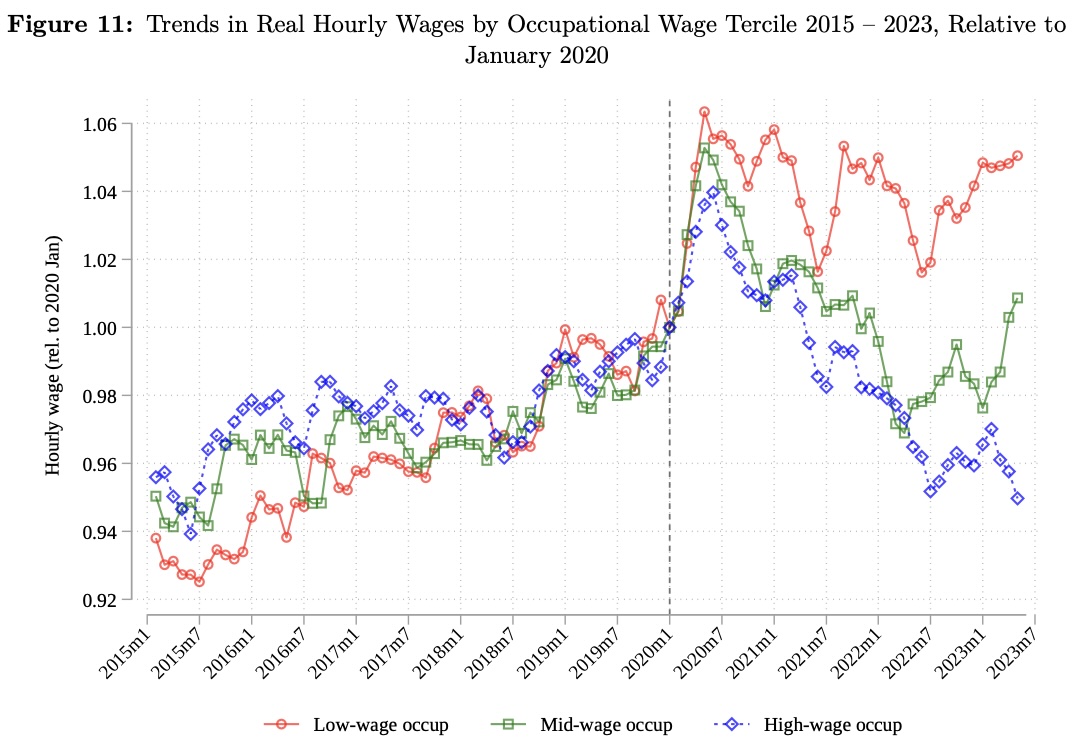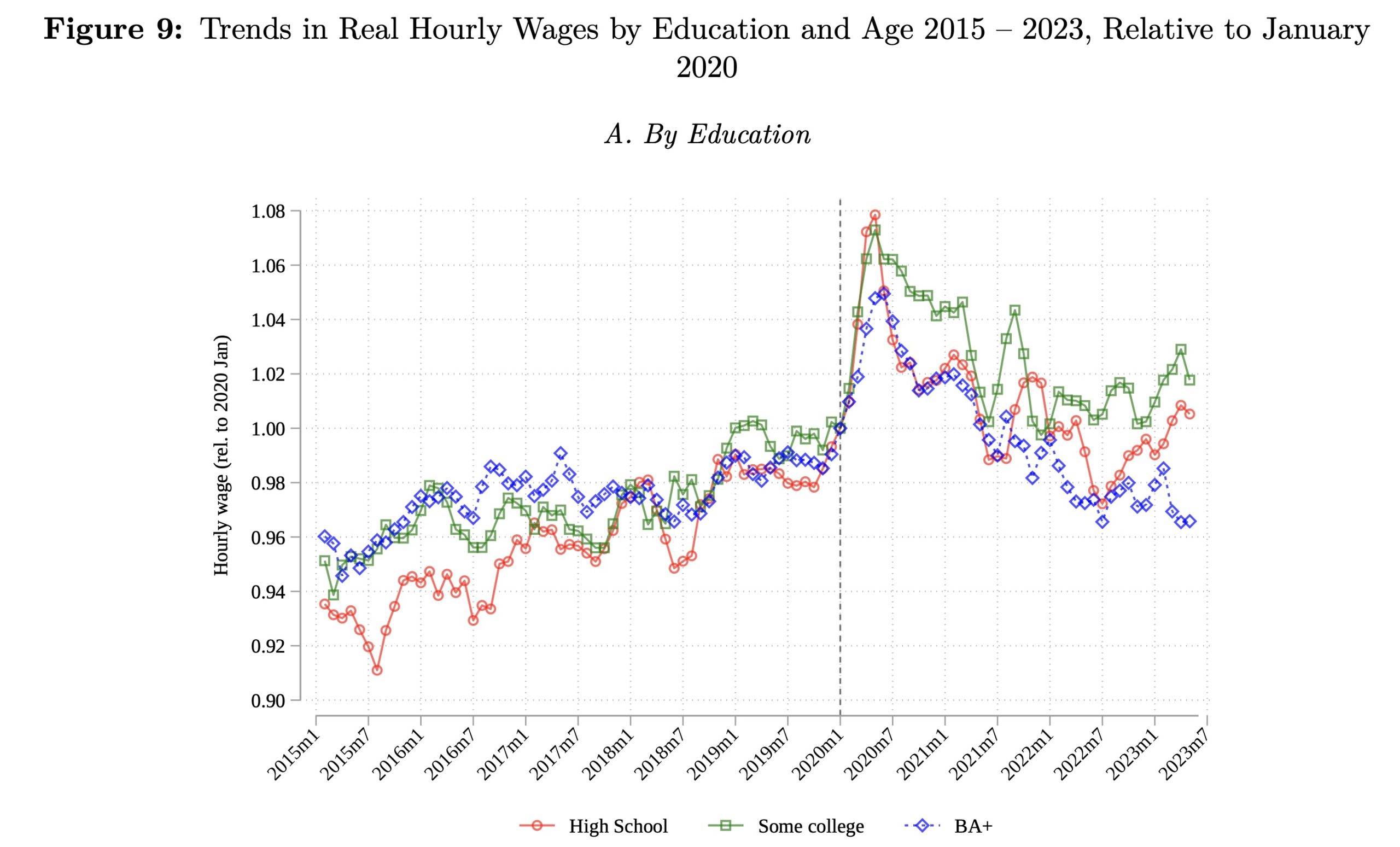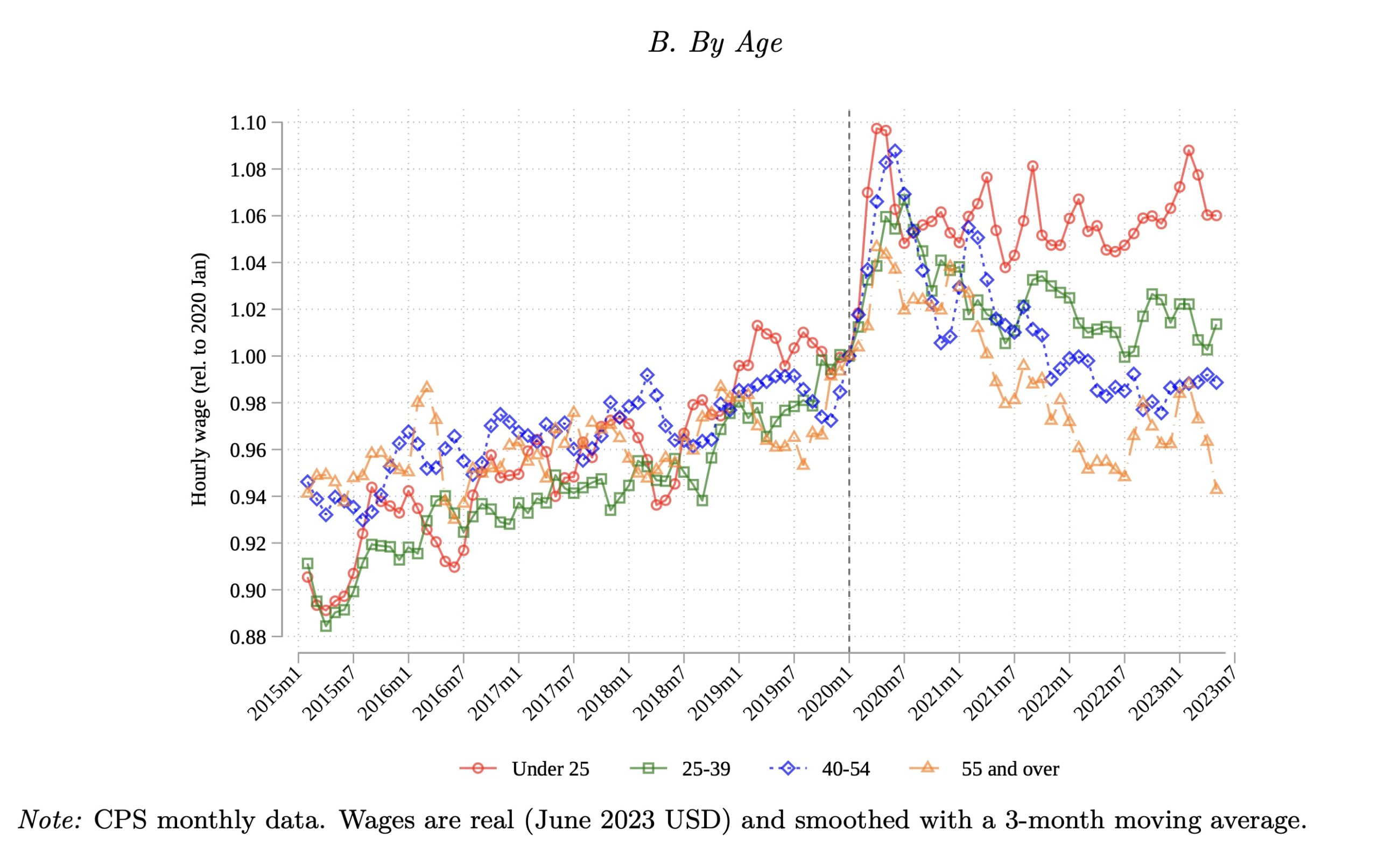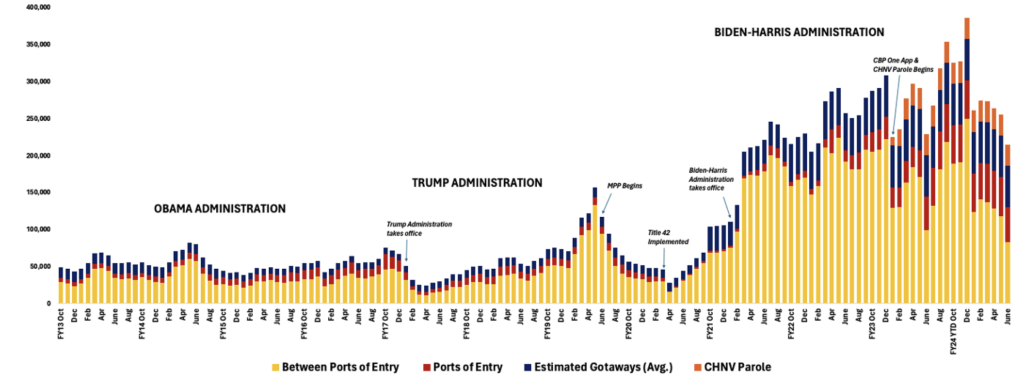Why Trump Won Over Kamala Harris: Economic Reality and Immigration Concerns
In the wake of the latest election, political pundits and analysts are trying to understand why Donald Trump won over Kamala Harris. Some argue that it’s because of gender bias or other social factors – “They need to be flawless, while Trump can be lawless” became a meme in liberal circles. I have no doubt that gender did play a role, but I believe that economic realities and immigration issues played a greater role in voters’ decisions. Let’s dive into the data and policies that shaped voters’ concerns and how these affected the outcome.
Economic Hardships Under Biden’s Administration
One of the major issues that has plagued Americans is stagnant or declining real wages, I.e. after accounting for inflation. While the Biden administration has overseen economic recovery from the pandemic, real earnings have not rebounded to their pre-pandemic growth trajectory. This discrepancy between wages and inflation has created a squeeze on household budgets, leaving many feeling worse off than they did before.
The following charts highlight the trends:
- Wages by Occupational Wage Tercile: Trends in real hourly wages show that workers across low-, mid-, and high-wage occupations have struggled to regain the purchasing power they once had. Low-wage occupations saw brief gains after the pandemic, but the trend has flattened or even declined, while High-wages collapsed with many workers experiencing signifficant real wage decline.

- Wages by Education and Age: Similar patterns emerge when looking at wage trends by education level and age group. Workers with various education backgrounds, from high school to BA+, have faced decreasing wages when inflation is factored in. Older workers, in particular, have felt this pinch, which could have driven them to vote against the status quo.


- Overall Compensation Trends: A broader look at real hourly compensation in the U.S. shows that we are not yet back on the growth trend seen before the pandemic. While nominal wages may have increased, inflation has eroded these gains, causing many Americans to feel as though their earnings have effectively decreased.

These economic issues resonate deeply with voters. When families feel financially strained, they are more likely to vote for change, seeking a leader who promises to restore economic stability. Trump’s campaign focused on bringing back manufacturing jobs, reducing inflation, and improving wage growth, which appealed to those struggling under Biden’s economic policies.
Illegal Immigration and Its Economic Impact
Another significant issue is illegal immigration. Since the start of Biden’s term, the U.S. has experienced a surge in illegal immigrants crossing the border. According to official numbers, 8.2 million illegal immigrants more have entered the U.S. during Biden’s administration than during Trump’s or Obama’s administrations. This influx has strained social services, increased competition for low-wage jobs, and added pressure to an already stressed housing market.

Milton Friedman famously argued that “you cannot have free immigration and a welfare state.” This statement resonates today as the increased burden on social security systems and local services due to illegal immigration becomes more apparent. Many Americans feel that Biden’s policies on immigration have been too lenient, allowing an overwhelming number of people to enter the country without proper vetting or planning. Milton Friedman also argued that the only form of immigration that is beneficial is illegal immigration, as this form of immigration does not strain the social security system. However, the US and Europe have fundamentally changed in the meantime, and Illegal immigration does carry significant social system costs. The economic cost of illegal immigration was a recurring theme in Trump’s campaign, with promises to bolster border security and reform immigration policies. This stance appealed to voters who believe that unchecked immigration negatively impacts their communities and economic opportunities.
Economic Realities Over Social Theories
While some may argue that Trump won because of gender dynamics or social issues, it is far more likely that his victory stemmed from real economic and policy concerns. Voters are feeling the financial squeeze, with wages failing to keep up with inflation, and they are concerned about the impact of unchecked immigration. Trump’s message of economic revival and stricter immigration policies resonated with these voters, offering hope for relief from their current struggles. It’s essential to understand that the outcome reflects voter concerns about their financial well-being and security. Addressing these issues head-on, rather than attributing them to social theories, is, in my view, the only way forward.
Charts from:
https://www.nber.org/papers/w31010 and https://fred.stlouisfed.org
